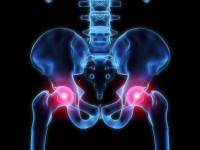Sulfur is usually found in vegetables, fruits, grains, and milk products. It is the 3rd most plentiful mineral in the human body. Concentrations are best through infancy and decrease with age. MSM is an natural compound including 34 percent sulfur.
Sulfur is employed in the production of proteins, including those required for forming muscles, hair, and the dermis. It is observed in teeth, bones, and collagen (which can make up connective tissues). MSM seems to be handy for discomfort aid, irritation, and supporting joint wellbeing. MSM also exhibits anti-oxidant properties. Study has shown MSM to have no side effects when used as directed.
Dr. Stanley Jacob states in his book, “The Miracle of MSM”, that primarily based on clinical knowledge MSM has been shown to be an effective pain reliever in about 70 percent of the cases.
Using MSM for Pain Relief
Are you plagued with discomfort? A poll conducted by ABC News, USA Today, and Stanford Medicalrevealed that around half of U.S. residents experience continual or recurrent pain. There are many options for pain relief.
Virtually each and every adult experiences some type of discomfort from time to time. Generally, persistent pain is described as pain that lasts much more than three months and recurrent discomfort comes and goes. Acute discomfort is pain that is short term or damage connected . The people today in the survey categorized their discomfort as follows: acute – 44 %, recurrent – 34 %, and chronic – 19 %.
Of the individuals encountering pain, just about fifty percent didn’t know what caused it. When questioned concerning the effect their discomfort had on everyday activities, 43 percent indicated it impacted their disposition and 39 % indicated it hindered sleep.
The remedies people utilized to relieve their pain varied greatly. Over 50 percent (63 %) indicated they had consulted a health care professional concerning their discomfort. Of those, only 59 percent felt they had received any substantial pain reduction as a outcome of the visit. One more fascinating aspect that came out of the study was the techniques individuals used for discomfort reduction. Here’s a listing of the top aid approaches:
• over-the-counter drugs – 84%
• household remedies – 81%
• prescription medications – 60%
• bed rest – 58%
• prayer – 58%
• chiropractic – 28%
• therapeutic massage – 28%
For the people that applied doctor prescribed prescription drugs, 19 percent indicated they took them every day. For over-the-counter drugs, 33 % applied them day-to-day or at the very least once a week.
In 1997, Dr. Norman J. Marcus, director of the New York Pain Remedy Program authored a document in which he stated that pain had arrived at epidemic proportions in America. In this article, Dr Marcus states, too manypeople endure from a type of pain every single 12 months, costing a substantial toll on their productiveness in the workplace and their capability to take care of their tasks at home.
Billions of dollars are spent just about every calendar year on health professional prescribed and over-the-counter medication. But medications don’t treatment disease, they basically treat signs or symptoms as a substitute for approaching the fundamental reason of the pain. When you get a headache, it is not because you have an aspirin deficiency. Many of the medications recommended nowadays have significant side effects.. For instance, nonsteroidal anti-inflammatory medicines are generally employed to decrease osteoarthritis pain, but they additionally tend to deteriorate joint tissue. A number of medication may have worth for healing injuries and acute illness, but they are nevertheless biochemical outsiders to the body and have a tendency to deplete nutrients, like vitamins and minerals. On the other hand, well known supplements like Glucosamine and Chondroitin can assist with the improvement of joint mobility and pain relief without the usual list of side effects.
In non-injury cases, discomfort commonly indicates that one or more of the entire body’s systems are out of stability. Figuring out the trigger(s) for the imbalance and correcting it with the right nutrition (including all-natural supplements), exercise, relaxation, and life-style changes can supply a much better long-term solution. Onesupplement that can perform an critical role in helping to deliver the physique back into stability is Methylsulfonylmethane (MSM).




